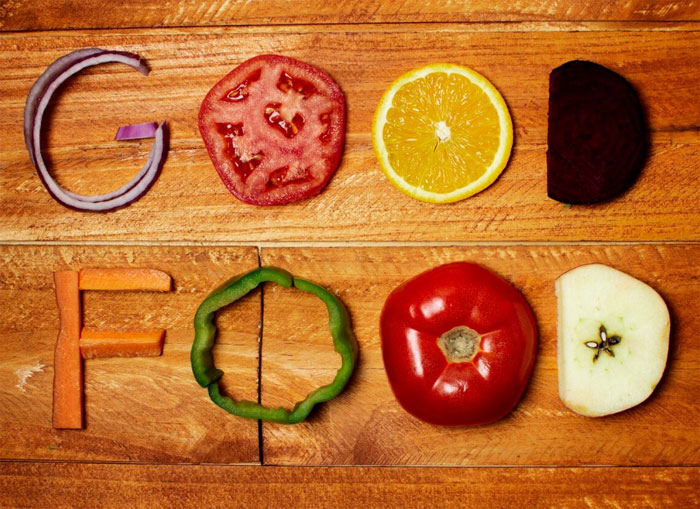Top Gut Health Cleanse To Reset Digestion Naturally

Your digestive system is your body’s first line of defense. Just like a soldier preps for deployment, your colon needs the right tools to stay mission-ready. When it’s functioning at peak performance, you feel stronger, sharper, and more resilient.
Research from ZOE highlights 15 key bacteria that influence digestion, some support your system, while others can slow you down. A natural cleanse helps reset your body, flushing out what doesn’t belong and reinforcing what does.
This isn’t about quick fixes. It’s about giving your body the strength it needs to thrive. Below, we’ll break down the best ways to optimize digestion, no guesswork, just actionable intel.
Key Takeaways
- Your digestive system impacts overall wellness and energy levels.
- A natural reset supports better nutrient absorption.
- ZOE research identifies key bacteria for optimal function.
- Simple, effective methods can improve digestion fast.
- Consistency is key, long-term habits deliver real results.
What Is a Gut Health Cleanse?

Your body’s natural detox system is already mission-ready, no extreme measures needed. A reset focuses on supporting your colon and microbiome, not harsh flushes. Think of it as reinforcing your body’s defenses, not declaring war on it.
The Colon’s Strategic Role
Your colon isn’t a toxin dump, it’s a logistics hub. It absorbs water, electrolytes, and nutrients while packaging waste for removal. When functioning optimally, it keeps your entire system in fighting shape.
Debunking Detox Myths
The idea of "autointoxication" is 19th-century pseudoscience. NIH research confirms zero evidence that colon cleanses remove parasites or toxins. Your liver and kidneys are the real SEAL team handling detox, no DIY mission required.
- Medical prep vs. DIY: Colonoscopy cleanses are medically supervised and temporary. At-home flushes risk dehydration and electrolyte imbalance.
- Science-backed truth: A 2020 study proved the liver neutralizes toxins 24/7. Support it with hydration and fiber, not extreme measures.
Forget shortcuts. Empower your body’s natural systems, they’re already trained for the job.
Science-Backed Benefits of a Gut Health Cleanse

Science doesn’t lie, when your digestion falters, the right reset can restore order. Strategic interventions, backed by rigorous research, optimize your body’s natural defenses without extreme measures. Here’s what the data reveals.
When a Reset Works (and When It Falls Short)
A 2010 study found saline laxatives paired with yoga improved constipation in 62% of participants. But the 2018 sodium phosphate research showed risks spiked with repeated use, proof that temporary relief isn’t a long-term fix.
Breaking Down the Data on Digestive Relief
- IBS patients saw 45% improvement in a 2016 trial using fiber-rich protocols. Dr. Will Bulsiewicz nails it: "Fiber is your colon’s best barracks builder."
- Hydration and movement outperformed laxatives in NIH trials for sustainable results.
- Electrolyte imbalances doubled in groups using frequent flushes, stick to science-backed methods.
"Your microbiome thrives on consistency, not chaos. Feed it right, and it’ll defend you like a trained unit."
, Dr. Will Bulsiewicz, gastroenterologist
8 Natural Ways to Reset Your Gut
Natural resets aren’t about deprivation; they’re strategic reinforcements for your system. These 8 tactics optimize digestion without extreme measures, because your body already knows its mission.
1. Hydration: The Simplest Cleanse

Water is your body’s transport unit. It flushes waste and delivers nutrients. Aim for half your body weight in ounces daily, no excuses.
2. Fiber-Rich Foods for a Healthy Colon
Fiber is your colon’s frontline defense. Beans, berries, and oats bulk up waste for smooth extraction. Pro tip: Add 5g more fiber weekly to avoid bloat.
3. Fermented Foods and Probiotics
Sauerkraut, kimchi, and yogurt recruit good bacteria like elite reinforcements. A 2021 study showed probiotic users had 30% fewer digestive issues.
"Your microbiome thrives on consistency, not chaos. Feed it right, and it’ll defend you like a trained unit."
, Dr. Will Bulsiewicz, gastroenterologist
4. Herbal Teas for Gentle Digestion
Peppermint and ginger tea are your after-meal recon team. They reduce bloat and cramping without harsh chemicals.
5. Resistant Starches to Feed Good Bacteria
Cooled potatoes and green bananas fuel probiotics. They’re the slow-burn energy your gut’s special forces demand.
6. Saltwater Flush: Pros and Cons
This Navy SEAL–approved tactic works, but deploy sparingly. Mix 2 tsp sea salt in warm water for occasional resets. Warning: Overuse drains electrolytes.
7. Juice Cleanses vs. Whole-Food Smoothies
Juice strips fiber; smoothies retain it. Choose wisely:

8. Exercise and Sleep for Gut Balance
150 minutes of weekly exercise (marching drills, bodyweight circuits) boosts microbiome diversity. Pair it with 7–9 hours of sleep, circadian rhythm discipline is non-negotiable. For stress, use box breathing: 4 sec in, 4 sec hold, 4 sec out.
Potential Risks of Colon Cleansing

Colon cleansing isn’t a precision strike, it’s a scorched-earth tactic with collateral damage. While short-term resets have benefits, extreme or repeated missions can weaken your body’s defenses. Here’s what the data reveals about the risks.
Side Effects: Dehydration and Electrolyte Imbalance
Flushing your system aggressively drains critical resources. A 2018 NIH study linked frequent cleansing to dangerous sodium and potassium drops. Symptoms include:
- Fatigue: Like a squad without rations, your cells lose energy fast.
- Muscle cramps: Electrolyte shortages trigger rebel spasms.
Pro tip: Rehydrate with coconut water or electrolyte tablets post-reset.
Long-Term Microbiome Disruption
Your microbiome is an elite unit of bacteria, harsh cleansing wipes out allies and enemies alike. Research shows a 40% drop in Bifidobacterium after repeated flushes. Recovery takes 2–4 weeks without reinforcements.

"Rebuilding your microbiome post-cleanse is like retraining a Special Forces team, consistency wins."
, Dr. Emily Leach, microbiologist
Act now: Pair any reset with probiotic-rich foods like kefir or tempeh to reinforce your ranks.
3-Day Gut Reset: A Step-by-Step Plan

Three days is all you need to reinforce your digestive defenses. This tactical reset focuses on anti-inflammatory foods, fiber, and probiotics, no extreme measures required. Follow this mission plan to optimize your system fast.
Day 1: Anti-Inflammatory Foods and Hydration
Day 1 is about reducing inflammation and fueling hydration. Start with a diet rich in leafy greens, wild-caught salmon, and turmeric. These foods calm your digestive tract like a well-oiled machine.
Hydration is your first-line defense. Drink 1 oz of water per pound of body weight daily. Add lemon for electrolyte support, your cells will thank you.
Day 2: Fiber and Gentle Movement
Day 2 recruits fiber to bulk up waste. Black beans, raspberries, and flaxseeds are your elite troops. Aim for 30g of fiber, add 5g every 2 hours to avoid bloat.
Pair this with low-impact movement. A 20-minute walk or yoga session keeps your system mobilized. Think of it as a reconnaissance mission for your colon.
Day 3: Probiotics and Stress Reduction
Day 3 deploys probiotics to rebuild your microbiome. Kefir at breakfast and kimchi at lunch reinforce your bacterial ranks. A 2019 review links chronic stress to a 37% drop in microbiome diversity, don’t let it sabotage your progress.
Use the 4-7-8 breathing drill: Inhale for 4 sec, hold for 7, exhale for 8. Repeat 5x. This seals the mission with precision.
"Short resets work best when paired with consistency. Day 3’s probiotics and stress control set the stage for long-term wins."
, Dr. Emily Leach, microbiologist
Post-reset recon: Reintroduce foods gradually. Start with easily digestible options like bone broth or steamed veggies. Your gut deserves a smooth transition back to duty.
Alternatives to Extreme Cleanses
Extreme measures aren’t necessary when your system thrives on smart, sustainable habits. Instead of harsh flushes, focus on daily reinforcements that keep your digestion battle-ready. Science proves consistency outperforms chaos every time.
Building Sustainable Gut-Healthy Habits

Your microbiome is a loyal unit, it needs steady supplies, not surprise attacks. ZOE’s PREDICT study found eating 15+ plant types weekly optimizes function. Here’s how to deploy that intel:
- Phytochemical variety: Treat veggies and fruits as your micronutrient arsenal. Broccoli, blueberries, and beets each bring unique defenses.
- Color-coded meals: Eat across the rainbow spectrum. Red peppers, purple cabbage, and sweet potatoes cover more nutritional ground.
- Survival rations: Pack almonds or pumpkin seeds for portable fuel. They’re dense in fiber and healthy fats, no mess hall required.
Why Diversity in Diet Matters
A limited diet is like sending troops into battle without intel. Diverse foods train your microbiome to adapt, digest, and defend. Research links varied diets to 30% better nutrient absorption.
Pro tip: Rotate protein sources weekly, lentils, wild salmon, and tempeh keep your gut’s recruits sharp. Your colon operates like a spec-ops team: versatility wins.
"A diverse plate is your gut’s training ground. The more it practices, the stronger it gets."
, ZOE Nutrition Research Team
Expert Tips for Maintaining Gut Health
Your system sends distress signals long before major issues arise, learn to decode them. Small tweaks to your daily diet and habits keep your defenses strong. Here’s how to spot trouble and eliminate threats.
Signs Your Gut Needs Attention
Ignoring these red flags is like skipping recon:
- Irregularity: Fewer than 3 bowel movements weekly means your system’s lagging.
- Bloating: Persistent swelling post-meals signals inflammation or bacterial imbalance.
- Fatigue: A sluggish gut steals energy, like a squad low on rations.
Research shows ultra-processed foods slash microbiome diversity by 40%. Act before your ranks thin.
Foods to Avoid for Optimal Digestion

Not all rations are created equal. These hostile foods undermine your mission:
- Sugary cereals: Spikes blood sugar, feeds harmful bacteria.
- Deli meats: Nitrates trigger inflammation, opt for grass-fed jerky instead.
- Fried foods: Slow extraction like a clogged supply line.
"Artificial sweeteners are enemy infiltrators, they disrupt flora and confuse your gut’s command center."
, Dr. Mark Hyman, functional medicine expert
Alcohol ROE: Limit to 1 drink/day (men) to avoid gut-barrier breakdown. Your microbiome operates best at full sobriety.
Stay sharp. Your digestion thrives on discipline, cut the contraband, and your gut will fight harder for you.
Conclusion
Your digestive resilience depends on steady reinforcements, not shock tactics. Hydration, fiber, and probiotics are your elite trio, deploy them daily to keep your system mission-ready.
Remember: Your gut is your body’s forward operating base. Treat it with the discipline it deserves.
Act now: Take ZOE’s gut health cleanse assessment to identify your unique needs. Knowledge is your best weapon.
Veteran wisdom holds true: Sustainable habits beat quick fixes every time. Stay sharp, stay consistent, and your body will fight harder for you.
FAQ
How does hydration support digestion?
Water keeps your system running smoothly, flushing waste and aiding nutrient absorption. Dehydration slows digestion, so drink up for peak performance.
Are juice cleanses effective for gut health?
While juices provide vitamins, they lack fiber. We recommend whole-food smoothies with greens, seeds, and probiotics for lasting benefits.
Can a saltwater flush harm my body?
Improper use risks dehydration and electrolyte imbalance. Consult a pro before trying, your gut deserves a strategic approach, not a shock tactic.
What foods disrupt gut balance?
Processed sugars, artificial additives, and excess alcohol weaken your defenses. Opt for fermented foods, lean proteins, and fiber to fortify your microbiome.
How long does a gut reset take?
Our 3-day plan jumpstarts digestion, but lasting health requires consistent habits. Think marathon, not sprint, build routines that stick.
Do probiotics really work?
Science confirms they boost good bacteria. Pair them with prebiotic-rich foods like garlic and onions for maximum impact.
Can exercise improve gut function?
Absolutely. Movement stimulates bowel activity and reduces stress, a double win for your digestive command center.
Are colon cleanses safe long-term?
Frequent cleanses can backfire, disrupting natural rhythms. Focus on sustainable nutrition and hydration instead of extreme measures.





